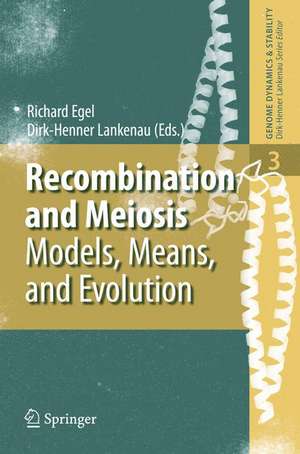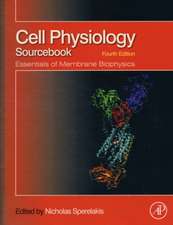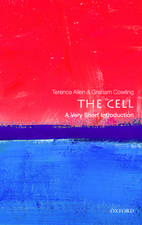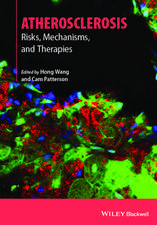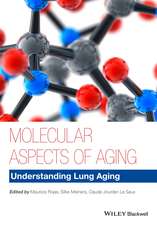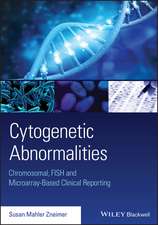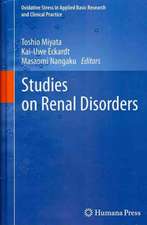Recombination and Meiosis: Models, Means, and Evolution: Genome Dynamics and Stability, cartea 3
Editat de Richard Egel, Dirk-Henner Lankenauen Limba Engleză Hardback – 18 aug 2008
| Toate formatele și edițiile | Preț | Express |
|---|---|---|
| Paperback (2) | 1222.31 lei 6-8 săpt. | |
| Springer Berlin, Heidelberg – 25 noi 2010 | 1222.31 lei 6-8 săpt. | |
| Springer Berlin, Heidelberg – 25 noi 2010 | 1547.54 lei 38-44 zile | |
| Hardback (2) | 1231.47 lei 6-8 săpt. | |
| Springer Berlin, Heidelberg – 18 aug 2008 | 1231.47 lei 6-8 săpt. | |
| Springer Berlin, Heidelberg – 7 dec 2007 | 1826.07 lei 6-8 săpt. |
Preț: 1231.47 lei
Preț vechi: 1501.79 lei
-18% Nou
Puncte Express: 1847
Preț estimativ în valută:
235.63€ • 246.05$ • 194.58£
235.63€ • 246.05$ • 194.58£
Carte tipărită la comandă
Livrare economică 15-29 aprilie
Preluare comenzi: 021 569.72.76
Specificații
ISBN-13: 9783540689836
ISBN-10: 3540689834
Pagini: 390
Ilustrații: XXI, 390 p.
Dimensiuni: 155 x 235 x 28 mm
Greutate: 0.84 kg
Ediția:2008
Editura: Springer Berlin, Heidelberg
Colecția Springer
Seria Genome Dynamics and Stability
Locul publicării:Berlin, Heidelberg, Germany
ISBN-10: 3540689834
Pagini: 390
Ilustrații: XXI, 390 p.
Dimensiuni: 155 x 235 x 28 mm
Greutate: 0.84 kg
Ediția:2008
Editura: Springer Berlin, Heidelberg
Colecția Springer
Seria Genome Dynamics and Stability
Locul publicării:Berlin, Heidelberg, Germany
Public țintă
ResearchCuprins
Evolution of Models of Homologous Recombination.- Searching for Homology by Filaments of RecA-Like Proteins.- Biochemistry of Meiotic Recombination: Formation, Processing, and Resolution of Recombination Intermediates.- Meiotic Chromatin: The Substrate for Recombination Initiation.- Meiotic Recombination in Schizosaccharomyces pombe: A Paradigm for Genetic and Molecular Analysis.- Nuclear Movement Enforcing Chromosome Alignment in Fission Yeast—Meiosis Without Homolog Synapsis.- On the Origin of Meiosis in Eukaryotic Evolution: Coevolution of Meiosis and Mitosis from Feeble Beginnings.- The Legacy of the Germ Line – Maintaining Sex and Life in Metazoans: Cognitive Roots of the Concept of Hierarchical Selection.- Lessons to Learn from Ancient Asexuals.
Textul de pe ultima copertă
Once per life cycle, mitotic nuclear divisions are replaced by meiosis I and II—reducing chromosome number from the diploid level to a haploid genome and recombining chromosome arms by crossing-over. In animals, all this happens during formation of eggs and sperm—in yeasts before spore formation. The mechanisms of reciprocal exchange at crossover/chiasma sites are central to mainstream meiosis. To initiate the meiotic exchange of DNA, surgical cuts are made as a form of calculated damage that subsequently is repaired by homologous recombination. These key events are accompanied by ancillary provisions at the level of chromatin organization, sister chromatid cohesion and differential centromere connectivity. Great progress has been made in recent years in our understanding of these mechanisms. Questions still open primarily concern the placement of and mutual coordination between neighboring crossover events.
Of overlapping significance, this book features two comprehensive treatises of enzymes involved in meiotic recombination, as well as the historical conceptualization of meiotic phenomena from genetical experiments. More specifically, these mechanisms are addressed in yeasts as unicellular model eukaryotes. Furthermore, evolutionary subjects related to meiosis are treated.
Of overlapping significance, this book features two comprehensive treatises of enzymes involved in meiotic recombination, as well as the historical conceptualization of meiotic phenomena from genetical experiments. More specifically, these mechanisms are addressed in yeasts as unicellular model eukaryotes. Furthermore, evolutionary subjects related to meiosis are treated.
Caracteristici
Together with the preceding volume in the series, this book covers all major aspects of meiotic research The chapters are written by expert researchers who significantly contributed to the progress in their fields
